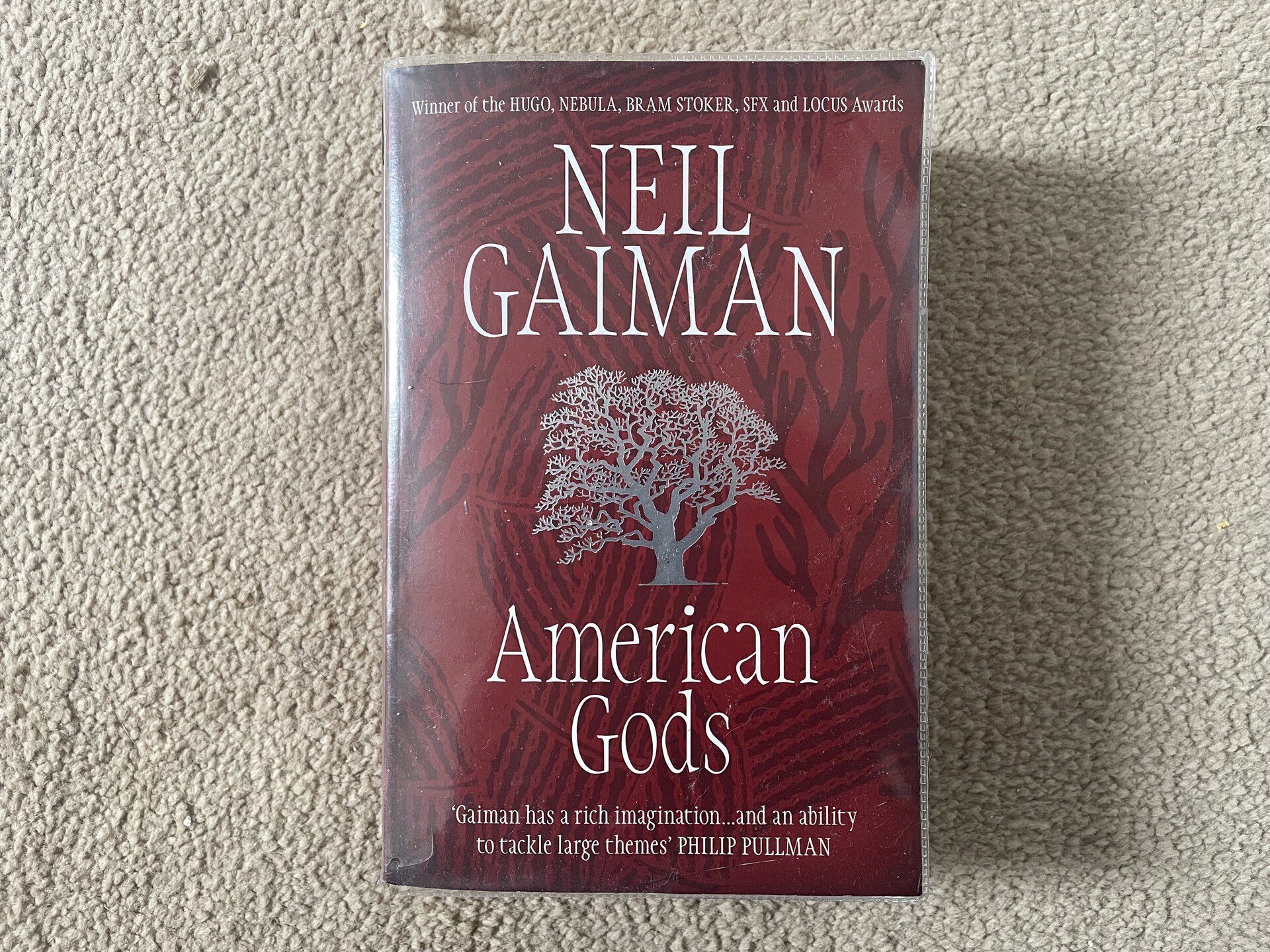American Gods
by Neil Gaiman
Published 2001 635 pages
It’s as good as people say—but no better.
Probably, to a certain extent, a product of the time. The characters are a little quippy and stale by the year 2023, but it pays to keep front of mind that this book was published in 2001, and probably paved the way for the quippy attitudes of modern popular characters.
Our protagonist is the tall dark & handsome Shadow, a man with a mysterious past who's recruited by an even more mysterious Mr. Wednesday, who reveals himself to be an American incarnation of the god Odin. It transpires that Odin is leading an Old Gods charge against the New Gods of America: the god of trains, the god of guns, the god of media, the god of technology. Shadow's sort of dragged into the middle of it for reasons that aren't immediately clear but which resolve themselves (with middling efficacy) late in the book.
The proper meat of the story is really good, though: I think that making the objects of our worship manifest in the world is a fun way to explore devotion; making them human (or nearly-human) grounds the story.
I don’t agree that America is a bad place for gods, though. Just because Americans don’t worship Odin or leprechauns (anymore, if they ever did) doesn’t mean that they don’t worship. I’d have liked to see how Uncle Sam was doing, or how the god of guns that Jesus mentions is holding up. There’s a brief discussion about how American worship is fleeting, that they move on from one thing to the next so quickly: from trains to planes to automobiles. But I think that’s just a facet of the modern world—and in that sense America is only “bad for gods” in the sense that it’s a modern country. Odin thrived in Norway because of that country’s long history—but I doubt that the Norwegian incarnation of Odin is faring much better than the American one (not withstanding the American Odin’s typically American go-getter attitude, which Gaiman nails).
The second act, much of which takes place in the picturesque town of Lakeview, was a little tedious; Mr. Wednesday takes Shadow on a series of trips to meet other gods mostly as a narrative pretext for colouring in a world where gods roam among us. I get that Gaiman needs to introduce certain characters so we recognise them when they show up for their contribution to the plot, but it frustrates me when books move their characters around just so that they can be in the right place at the right time later. The plot takes a bit of a backseat at this point, which grinds things to a bit of a halt: a character study this book is not.
Woven throughout are meetings between Shadow and his dead wife, Laura. She dies offscreen but is accidentally brought back as a zombie, and spends much of the rest of the novel sort of appearing and disappearing at random to deus ex machina loose threads. She explains it by saying that she “just has a feeling” about where she needs to be and what she needs to do. Any time trouble was heading for Shadow I expected Laura to show up and bust him out of it.
Light spoilers here: the denoument unwhelmed me. The battle between the gods is built and built, and the tension ratcheted up and up, and the undoing of the battle takes place over a page and a half and takes the form of a wimpy speech. And then everyone comes round to pat Shadow on the shoulder and tell him he did a good job.
Not sure what was the purpose of the epilogue, where Shadow discovers that Lakeside was actually being Omelas-ed the whole time. What was the point of that?
Previous
Channelled some nervous energy into writing an application that counts down the seconds until something happens. Maybe not the best use of my nervous energy.